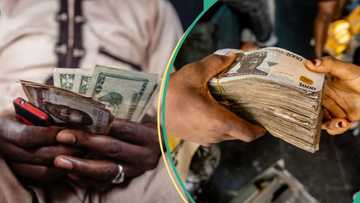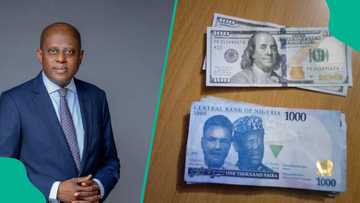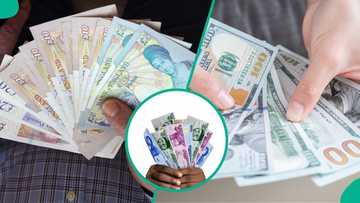Analysts Raise Concerns as Dollar Inflow Into Nigeria Declines
- In June 2025, Nigeria's official foreign exchange market saw a sharp decline in US dollar supply, dropping by 28.1% from May to $4.84 billion, with domestic contributions falling significantly
- While foreign portfolio inflows rose by 116.8% to $2.73 billion, analysts warn that the country's increased reliance on foreign investors—who can quickly withdraw their funds—poses a risk
- Experts caution that unless Nigeria boosts reliable domestic foreign exchange sources, such as non-oil exports and remittances, its economic stability may be at risk
Legit.ng journalist Zainab Iwayemi has 5-year-experience covering the Economy, Technology, and Capital Market.
In June 2025, Nigeria's official foreign exchange market (NFEM) experienced a sharp decline in US dollar supply, dropping to $4.84 billion.

Source: UGC
According to data gathered by Daily Sun, this represents a 28.1% decline from the $6.74 billion reported in May.
Given the country's increasing dependence on foreign investors for dollars and the reduced contributions from domestic providers of foreign exchange—such as exporters and the Central Bank—analysts believe the decline is concerning and could make Nigeria more vulnerable to external shocks.
In its most recent market analysis, data from FMDQ shows that dollar inflows from domestic sources fell by 61.4% to $2.11 billion, marking a four-month low. Currently, only 43.7% of all dollar inflows come from domestic sources.
Individual contributions to the FX market fell by an alarming 91.6%, according to the breakdown. In addition, the Central Bank of Nigeria (CBN) reduced its supply by 77.2%, while exporter and importer inflows decreased by 74.4%. Corporate inflows from non-bank sources also declined, but by a lesser amount of 17.6%.
Meanwhile, foreign exchange from foreign sources rose 116.8% month-over-month to $2.73 billion in June, the highest amount in more than two years. High interest rates at recent CBN auctions and cautious optimism about upcoming FX reforms likely helped foreign portfolio investors (FPIs) raise their inflows by 133.6%, driven by growing confidence in the market.
However, analysts caution that this increased reliance on foreign investors is risky, especially since their capital—often referred to as "hot money"—can disappear as quickly as it arrives.
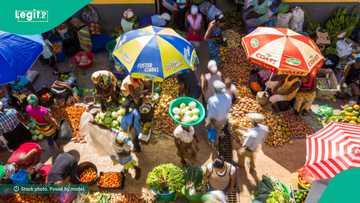
Read also
Full lst:10 most affordable Nigerian states to Live In as inflation drops to 22.22 per cent
David Adonri, Vice-Chairman of the Board at Highcap Securities Limited, said: “The sharp drop in local contributions, especially from the CBN and exporters, suggests fragile confidence among domestic actors, while the rise in foreign inflows is primarily ‘hot money,’ which can reverse quickly.”
He added that Nigeria's shift to allowing the market to determine the value of the naira could eventually be jeopardized unless the country increases reliable domestic foreign exchange sources, such as non-oil exports and remittances from the diaspora.
Governor Olayemi Cardoso of the CBN has been withdrawing from direct involvement in the foreign exchange market since assuming office. This is part of the bank's strategy to lower inflation and allow the currency rate to be set by market forces. However, the latest data suggests that exporters and individuals have not yet filled the gap left by the CBN.
According to Johnson Chukwu, founder of Cowry Asset Management, relying too heavily on foreign short-term funding is not a prudent course of action. “If foreign investors perceive any risk, whether global or domestic, they will exit, putting renewed pressure on the naira,” he warned.
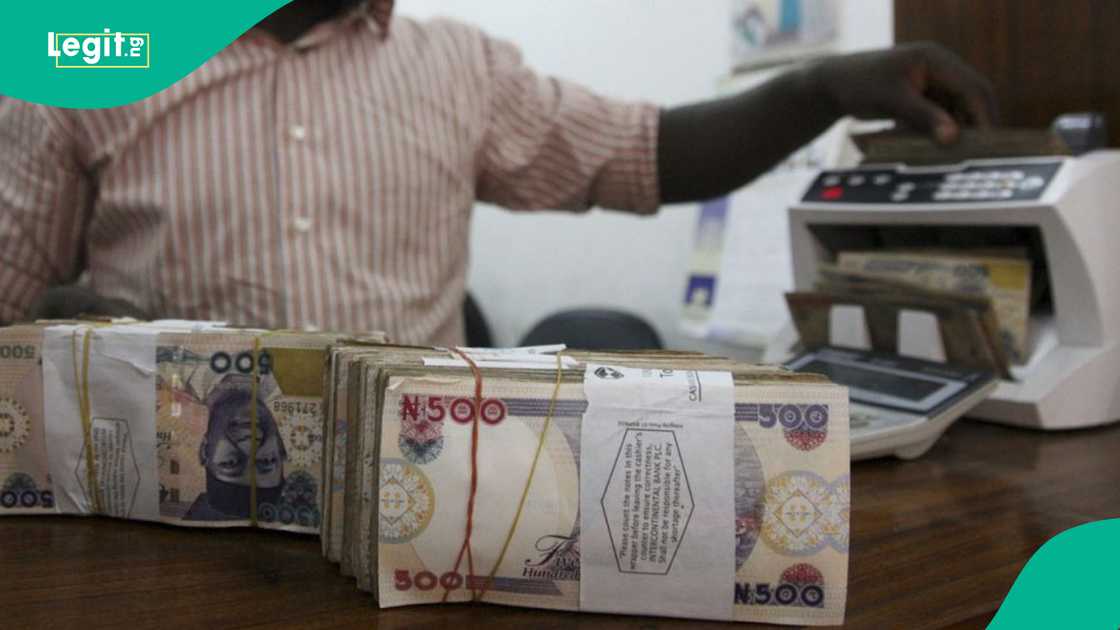
Source: UGC
Thanks to favorable interest rates and a stable market, Cordros Securities anticipates that foreign portfolio inflows may continue to rise in the near future. However, they also highlight that uncertainty remains. Foreign interest may decline again if there is a global financial crisis or if Nigeria slows down its reforms.
“In the near term, we anticipate that foreign exchange inflows (particularly from FPIs) will continue to improve, supported by growing market confidence and elevated stop rates at OMO auctions. However, the lingering global trade uncertainties remain a downside risk to inflows from foreign counterparts, potentially constraining growth in the overall liquidity of the NFEM,” the Cordros report stated.
Charles Abuede, a financial analyst advised on how to the naira can maintain its balance agaist foreign currencies.
"If Nigeria can address insecurity and terrorism concerns, oil theft and pipeline vandalism, we can begin to see an increase in our crude oil production to above 2mbpd or even close to 2.5mbpd to aid the increase in fx receipt." Read more: https://www.legit.ng/business-economy/industry/1626232-naira-finally-rises-dollar-pressure-mounts-official-black-market/
CBN announces new dollar inflow into Nigeria
Legit.ng reported that the Central Bank of Nigeria of Nigeria (CBN) has disclosed that diaspora remittances via International Money Transfer Operators (IMTOs) reached $4.22 billion from January to October, more than the $2.62 billion reported in the same period last year.
The CBN governor, Olayemi Cardoso, stated this during a session with the Senate Committee on Banking, Insurance, and Other Financial Institutions on Wednesday, December 18, 2024.
The apex bank’s chief said the remittance spike represents about 61.1% in 12 months.
Source: Legit.ng


